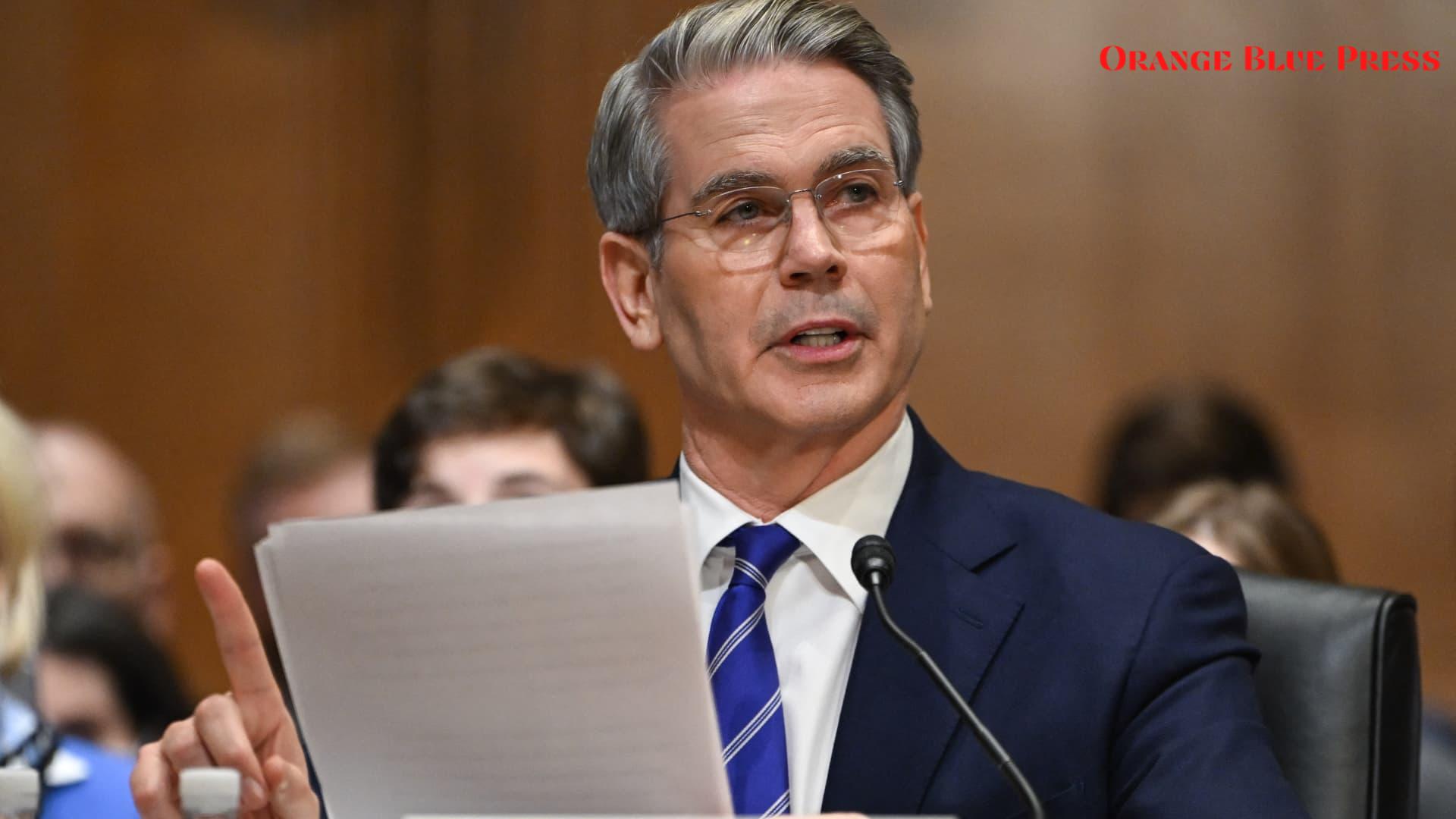In a pivotal moment in U.S. politics, Scott Bessent, President Trump’s nominee for Treasury Secretary, faced a series of tough questions during his confirmation hearing. His statements focused on the nation’s spending issues and the importance of maintaining tax cuts that favor the wealthy. Bessent’s remarks come at a time when the U.S. government is grappling with increased deficits, sparking debates among lawmakers and the public alike.
Spending Problems Take Center Stage
During his testimony, Bessent emphasized that the United States is dealing with a significant spending problem, rather than a revenue problem. He pointed out that the deficit for the fiscal year 2025 reached a staggering $710.9 billion over just three months, marking a 39.4% increase compared to the same period last year. This rise in deficit is notably alarming, as it has occurred outside of usual economic downturns or wartime periods. Bessent stated:
- ‘This surge in the deficit is unprecedented and should be a wake-up call for all of us.’
With U.S. debt exceeding $36 trillion, the implications of Bessent’s comments ripple throughout economic discussions in Washington and beyond.
Tax Cuts in the Spotlight
Another key topic of discussion during the hearing was Bessent’s stance on extending the 2017 Tax Cuts and Jobs Act. This legislation, which has been a hallmark of Trump’s economic policy, is particularly beneficial for high-income earners. Bessent noted that:
- ‘Extending these tax cuts remains one of the most crucial economic issues we face.’
The extension of these tax cuts could cost around $4 trillion over the next decade—an expense that many Democrats find troubling as they highlight potential economic inequalities and argue that tax cuts should not be prioritized for the wealthiest Americans.
Debate Over Debt Ceiling Removal
Another contentious issue during the hearing was whether or not to eliminate the debt ceiling completely. When asked by Senator Elizabeth Warren, Bessent dodged a definitive commitment. However, he mentioned he would collaborate with President Trump if confirmed. This highlights a broader debate in Congress about the economic repercussions of maintaining a debt ceiling that often brings fiscal negotiations to a standstill.
Concerns Over Alleged Tax Evasion
Complicating matters for Bessent are the allegations of tax evasion looming over him. Senate Democrats have circulated a memo suggesting that he owes nearly $1 million in self-employment taxes. This has raised eyebrows and caused concern among senators, particularly regarding Bessent’s commitment to fair tax policies. Senator Ron Wyden criticized him for avoiding Medicare taxes through legal loopholes, further complicating his confirmation process.
The Minimum Wage Debate
In addition to concerns about tax policies, Bessent has also expressed opposition to raising the federal minimum wage of $7.25 per hour. This position has drawn criticism, especially as many advocate for a higher wage to match living costs. His views on this topic reflect a broader trend among high-profile nominees and policymakers, showcasing their economic philosophies that often favor large businesses and wealth accumulation.
| Key Issues Addressed | Scott Bessent’s Positions |
|---|---|
| U.S. Deficit | Claims it’s a spending problem, not a revenue issue |
| Tax Policy | Advocates for extending 2017 tax cuts |
| Debt Ceiling | Open to discussing its elimination |
| Minimum Wage | Opposes raising it from $7.25 |
Bessent’s confirmation will significantly influence U.S. fiscal policy moving forward. As he continues to face scrutiny, the outcome remains uncertain. Observers are keeping a close eye on Congress and the implications of his potential policies, which could shape economic discussions for years to come.




















